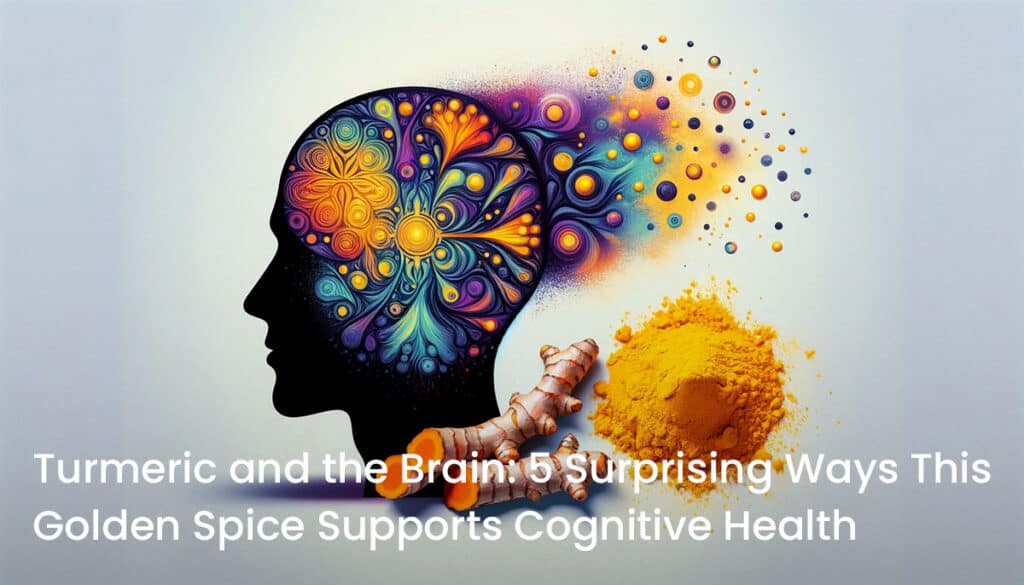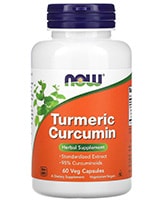

Introduction
Turmeric, a spice renowned for its vibrant colour and use in traditional Asian cuisine, has garnered significant attention in the scientific community for its potential health benefits. Curcuma longa, the plant from which turmeric is derived, contains curcumin, a compound that has been the focus of numerous studies. This article delves into how turmeric can support cognitive health, drawing on recent research and scientific findings.
1. Enhancement of Memory and Cognitive Function
Recent studies have increasingly highlighted the role of turmeric in enhancing memory and cognitive function. The active compound in turmeric, curcumin, has been observed to significantly impact cognitive processes. Research indicates that curcumin aids in the improvement of memory retention and enhances cognitive performance. This is particularly evident in studies involving individuals with mild memory complaints, where curcumin supplementation was linked to better performance in memory-related tasks.
2. Neuroprotective Properties
Turmeric’s neuroprotective capabilities are another area of interest in cognitive health research. The compound curcumin has demonstrated potential in safeguarding the brain against neurodegenerative diseases. Its antioxidant properties play a crucial role in this protective effect. By neutralizing free radicals and reducing oxidative stress, curcumin helps mitigate the risk of brain cell damage, a common pathway in the development of neurodegenerative diseases like Alzheimer’s and Parkinson’s.
3. Boosting Brain-Derived Neurotrophic Factor (BDNF)
The role of curcumin in elevating Brain-Derived Neurotrophic Factor (BDNF) levels is a significant aspect of its cognitive benefits. Research, such as the study in “Brain Research” [1]Haider, S., Naqvi, F., Batool, Z., Tabassum, S., Sadir, S., Liaquat, L., Naqvi, F., Zuberi, N. A., Shakeel, H., & Perveen, T. (2015). Pretreatment with curcumin attenuates anxiety while strengthens memory performance after one short stress experience in male rats. Brain Research Bulletin, 115, 1-8. https://doi.org/10.1016/j.brainresbull.2015.04.001, has shown that curcumin administration can lead to an increase in BDNF, particularly in brain regions crucial for learning and memory. This increase is pivotal for neurogenesis, the formation of new neurons, enhancing cognitive functions and resilience against neurodegenerative diseases. The effective dose of curcumin to achieve these effects varies, but studies often use doses ranging from 200 to 500 mg/kg, indicating a dose-dependent relationship.
4. Alleviating Symptoms of Depression and Anxiety

Curcumin’s potential in treating mood disorders extends beyond neurotransmitter modulation. While its impact on serotonin and dopamine is significant, curcumin also affects the hypothalamic-pituitary-adrenal (HPA) axis, a central component of the body’s stress response system. Dysregulation of the HPA axis is commonly observed in depression, and curcumin’s ability to modulate this axis presents another mechanism for its antidepressant effects. Clinical trials, such as those published in “Phytotherapy Research” [2]Sanmukhani, J., Satodia, V., Trivedi, J., Patel, T., Tiwari, D., Panchal, B., Goel, A., & Tripathi, C. B. (2014). Efficacy and safety of curcumin in major depressive disorder: A randomized controlled trial. Phytotherapy Research, 28(4), 579-585. https://doi.org/10.1002/ptr.5025, have demonstrated curcumin’s efficacy in reducing depressive symptoms, comparable to certain antidepressants. These findings, while promising, are preliminary, and further research is needed to fully understand curcumin’s therapeutic potential and optimal dosing for mood disorders.
5. Anti-Inflammatory Effects and Brain Health
Neuroinflammation, often stemming from various sources such as environmental factors, aging, and lifestyle choices, plays a significant role in cognitive decline. Curcumin, known for its anti-inflammatory properties, may help mitigate this inflammation, which is a key factor in the development of neurodegenerative diseases like Alzheimer’s. It inhibits molecules involved in inflammation, such as cytokines and COX-2 enzymes. Additionally, the relationship between increased BDNF levels and reduced inflammation is noteworthy. BDNF not only supports neurogenesis but also contributes to the resilience of neurons against inflammatory damage. While curcumin’s anti-inflammatory effects are evident, understanding the specific pathways and their direct impact on cognitive health requires further research.
Conclusion
The exploration of turmeric, particularly curcumin, in cognitive health reveals a spectrum of potential benefits, from memory enhancement to neuroprotection. Its role in elevating BDNF levels, alleviating mood disorders, and reducing neuroinflammation highlights its promise as a supplement for brain health. However, it is crucial to approach these findings with a recognition of the ongoing research and the current limitations in understanding the full scope of curcumin’s effects. As research continues to evolve, individuals should consult healthcare professionals for personalized advice on incorporating turmeric into their health regimen. For those interested in further exploring the cognitive benefits of turmeric, seeking out additional resources and staying informed about the latest research findings are encouraged.
Buy Turmeric Online Review Comparison Table
| Product | Company | Quantity | Price | Country | Website |
 Turmeric Curcumin | iHerb | 60 pills (665mg) | $18.25 |  Worldwide, AU | Visit Website >> |
References
| ↑1 | Haider, S., Naqvi, F., Batool, Z., Tabassum, S., Sadir, S., Liaquat, L., Naqvi, F., Zuberi, N. A., Shakeel, H., & Perveen, T. (2015). Pretreatment with curcumin attenuates anxiety while strengthens memory performance after one short stress experience in male rats. Brain Research Bulletin, 115, 1-8. https://doi.org/10.1016/j.brainresbull.2015.04.001 |
|---|---|
| ↑2 | Sanmukhani, J., Satodia, V., Trivedi, J., Patel, T., Tiwari, D., Panchal, B., Goel, A., & Tripathi, C. B. (2014). Efficacy and safety of curcumin in major depressive disorder: A randomized controlled trial. Phytotherapy Research, 28(4), 579-585. https://doi.org/10.1002/ptr.5025 |

Leave a Reply